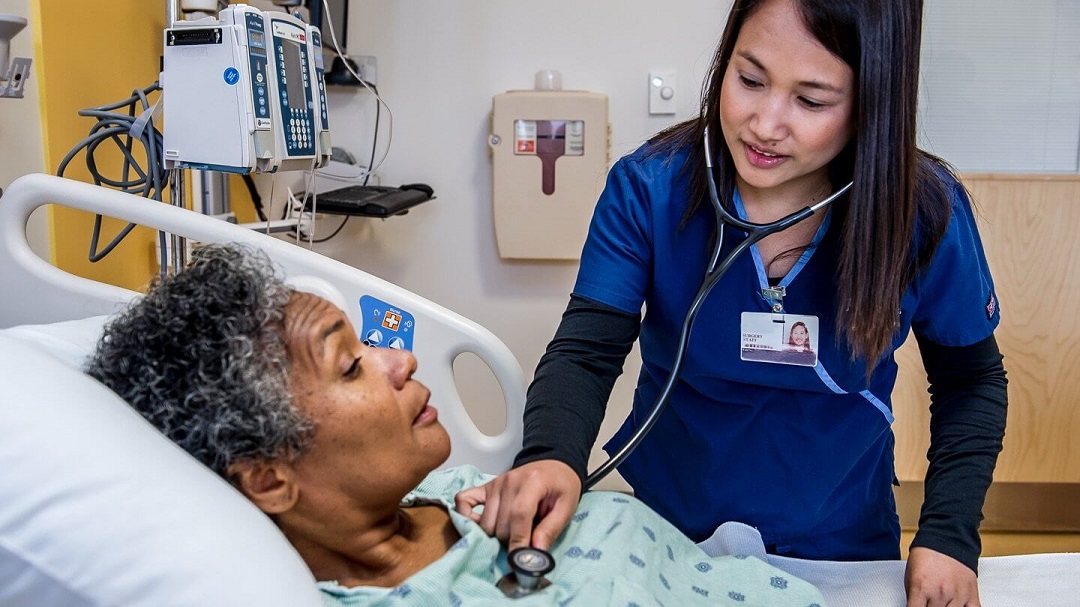While homeownership is essential in building wealth, navigating the process can sometimes feel daunting. As a nurse, there are many questions, starting with the obvious—am I even eligible for a home loan? The fact is there are many mortgage loan options available for nurses. However, you will need to put in extra work.
Here we will explore some of the many programs available for nurses when it comes to acquiring a home mortgage. As we mentioned, the mortgage process may be slightly different for nurses, often because your income is slightly different from the traditional 9 to 5. We will walk you through these changes and how to navigate the mortgage process.
We understand that buying a home and navigating the mortgage industry can be daunting, especially as a nurse with a unique income structure. However, that doesn’t mean you have to give up on homeownership. Here we help explain the process and what you can do to make it easier.
Key takeaways
- Nurses can qualify for home loans, but need to explain employment gaps and per diem work.
- Lenders use total income to determine eligibility for a home loan.
- Travel nurses can boost eligibility with a good income and employment history, credit score, and detailed paperwork.
- Nurses should consider their work nature, finances, down payment, credit score, and ability to explain employment gaps before buying a house.
- Programs available to help nurses get home loans: Hero Home Programs, Nurse Next Door grants, and Homes for Heroes.

Are there home loans for nurses?
There are a variety of special home loans designed for those in the nursing field. Local and national assistance programs also offer financial assistance to nurses looking to purchase a home. This can include up-front grants and discounts on down payments and closing costs.
I’m a staff nurse can I get a home loan?
As a nurse, you may encounter income factors that aren’t universal, such as employment gaps and per diem/shift work. But never fear, home loans for nurses are possible. While employment can be tricky to explain, nursing professionals generally make a steady income, and with a bit of patience and knowledge, lenders will see you as a solid investment.
What about home loans for travel nurses?
Travel nurses have an income flow that loan officers often don’t understand. They consider it “unstable income” as lenders don’t like to see employment changes. For travel nurses, this kind of rock-steady record can be impossible—there are jumps between agencies, per diem work, and even periods of staff nursing.
To increase eligibility for a home loan as a travel nurse, be sure to have substantial employment and income history. FHA loans require a steady, documented income of at least two years for qualification. Have detailed paperwork (pay stubs, W-2s, and agency contacts) ready to demonstrate eligibility.
Be ready to explain the nature of travel nursing. By writing a letter detailing the profession’s high demand and your full work history, you can influence a loan officer to see you as a good candidate.
Finally, maintain a good credit score. A score of 580 and above is imperative to qualify for a home loan. A travel nurse can sometimes be considered self-employed, so an excellent credit score can go far in demonstrating an ability to pay bills on time and consistently.
Things to consider before buying a house as a nurse
Before embarking on the path to homeownership, certain things need to be considered.
- The nature of your work. For example, are you a travel nurse or a staff nurse? How do you get paid?
- What are your financial priorities?
- How much money do you have set aside for a down payment (FHA and some other conventional loans require 3.5% of the sale price)
- What is your credit score?
- What can you do to improve it?
- Are you comfortable explaining employment gaps and/or the nature of travel/staff nursing?
- Do you have the documentation to prove a steady income and the ability to pay bills on time?
Programs available to help nurses get home loans
1. Hero Home Programs
The Hero Home Program for Nurses is made up of a network of professionals that include Realtors, Lenders, Title Companies, Attorneys, and other home-buying professionals. They work together to offer special offers and discounts when a qualified applicant buys, sells, or refinances a home. The program is available to a variety of medical professionals, including nurses, and offers the following benefits:
- Waived fees.
- Discounted rates for mortgage loans.
- Increased maximum borrowing amounts.
- Free 12-month home warranty.
- Grants and rebates.
- Credit at closing.
- Discounts for home-related services (includes movers, carpet cleaners, inspection, and more).
To learn more about their offering, you can book a consultation with them here.
2. Nurse Next Door grants
The Nurse Next Door program was developed to streamline the homebuying process for nurses by offering a matching program to find the best loan available. A team of professionals handles purchasing paperwork, financing, and closing and assists in finding the most affordable housing for the best rate.
Nurse Next Door professionals can help to navigate grants available to nursing professionals through federal, state, and local programs such as SHIP, Keystone Challenge Fund, HUD, VA, USDA, Fannie Mae, and other local agencies. Nurse Next Door also offers private money grants to qualified individuals, funded all or in part by agents and lending partners. These grants can be used toward closing costs.
3. Homes for Heroes
Homes for Heroes is a program available to healthcare workers to assist in buying, selling, or refinancing a home. Their team of professionals offers guidance in finding the best rates for loans and offers savings on lender fees, title service, and home inspection.
You may pick and choose which of these professional services to take advantage of, though with each specialist you use through HFH the savings increase. They are available to advise on finances and credit scores so that you can prepare yourself to present the best-case scenario to loan officers.

Home loans for nurses
In many cases, traditional home loan programs offer the best rates and benefits for nurses looking to purchase a new home. These loan options include conventional loans and government-backed loans such as FHA, VA, and USDA.
Conventional loans
When it comes to buying a home, conventional loans are the most popular loan option available. These loans follow the guidelines set out by Fannie Mae and Freddie Mac. A conventional loan is often the best option for home buyers with a credit score of 620 or better and, for those that qualify, the required downpayment can be as low as 3% of the purchase price but will require private mortgage insurance (PMI).
Benefits of a conventional loan include:
- Ability to cancel PMI once you have 20% equity in the home
- 3% down payment minimum
- Home can be located anywhere
VA loans
If you are a nurse that served or is serving in the military, a VA loan backed by the Department of Veteran Affairs may be your best home loan option. Credit score requirements can vary by lender and range between 580 and 660. Buying a home with a VA loan does require the buyer to pay a one-time VA funding fee that ranges between 2.3% and 3.6% of the total loan amount. This fee can be rolled into the loan balance, so an upfront payment is not required.
Benefits of a VA mortgage include:
- No down payment required
- No private mortgage insurance
- Low closing costs
- Competitive interest rates
- No prepayment penalties
USDA loans
If you are a nurse serving rural areas, the USDA home loan may be your best mortgage option. Backed by the US Department of Agriculture, these loans are limited to homes in designated rural areas. To find potential homes, the UDSA offers maps to see if your area is eligible. In addition, you must also meet household income limits to qualify.
Benefits of a USDA home include:
- No down payment requirement
- Low monthly private mortgage insurance (PMI) for any loan with a downpayment of less than 20%
- Below market interest rates
- Flexible credit guidelines
- Closing cost assistance
FHA loans
FHA loans are backed by the Federal Housing Administration and are designed to help those with less-than-ideal credit purchase a home. Those with a credit score between 580 and 620 can qualify and these loans offer a lower down payment option of 3.5% but require mortgage insurance premiums (MIP) for the life of the loan.
Benefits of an FHA mortgage include:
- Low down payment
- Flexible with credit history requirements
- Lower interest rates
- Low debt-to-income requirements
Tips for getting approved as a staff nurse
Staff nurses have an easier time qualifying for a mortgage as they are able to provide a base income as well as an actual income, as discussed below. However, for nurses working a more flexible schedule, lenders can see this as an increased risk when it comes to evaluating you as a lender.
Tips for getting approved as a travel nurse
As a travel nurse, applying for a mortgage can be more difficult when it comes to providing income and employment records. Despite larger hourly rates or salaries often paid to travel nurses, gaps in employment and multiple different employers can send up red flags to lenders. Before you consider purchasing a home, it is a good idea to maintain a comprehensive record of employment that includes pay stubs, w-2s, and any other documentation that relates to your employment history. When applying for a mortgage, it is a good idea to include a letter of explanation that explains your circumstances and includes a two-year employment history.
How much can I loan as a nurse?
Total income is a marker that lenders use to identify whether a home buyer is the right candidate for a loan. Mortgage lenders will use this number as a springboard to determine the debt-to-income ratio (earnings vs. monthly debts) to decide if you qualify for a home loan.
Base income vs. actual income
As a nurse, your income can be less conventional than those in other industries. A base income refers to a standard hourly rate or annual salary. However, for most nurses, a base income does not accurately reflect the income a nurse brings in. Nursing wages can drastically change based on shift hours, overtime, and shift differential, meaning that the majority of nurses often bring in substantially more than their traditional base income. Unfortunately, proving actual income can be difficult, especially for nurses without a two-year employment history, as it is difficult to prove actual income.
How to calculate your total income as a nurse
When applying for a mortgage as a nurse, it is important to determine your actual income. In order to do this, you calculate your income based on a two-year period. To accurately do this, follow the steps below.
- Step 1: Calculate your base income – To do this, multiply your guaranteed weekly work hours by your base hourly rate.
- Step 2: Calculate your shift differential pay for a two-year period – If your employer pays a shirt differential with a higher hourly rate for a specific shift, such as a night shift, multiply the number of hours you worked those shifts by the differential rate.
- Step 3: Calculate overtime for a two-year period – Similar to the differential pay, calculate your overtime pay by multiplying the number of overtime hours worked by the overtime rate.
- Step 4: Calculate your total income – Once you have totals from steps 1-3, add the amounts together to get your total income amount.
How to calculate employment gaps
In the nursing field, employment gaps are inevitable. It’s merely the nature of the job. Employment gaps are the time taken off in between contracts. For both staff and travel nurses, these can occur between heavy assignments or agency changes. Typically, lenders consider a month or more a significant gap that will require explanation.
To account for employment gaps, be sure to have an excellent and detailed letter of explanation ready to show lenders. They will need to be able to understand the nature of nursing work thoroughly.
More importantly, have at least a two-year history of steady income. Explanations of contractual nursing work will go over better when a loan officer can see and understand a long-term employment history. Lenders review cases on an individual basis, so presenting an informed and detailed background is key.
Contact us today!
Due to the nature of some nursing professional paradigms, there may be a little extra work involved in convincing lenders to approve a home loan. However, overall nursing is considered a well-paid, stable profession. With a bit of research and utilization of these special programs designed to help healthcare professionals, homeownership can be more real than a dream. Request a consultation today!












